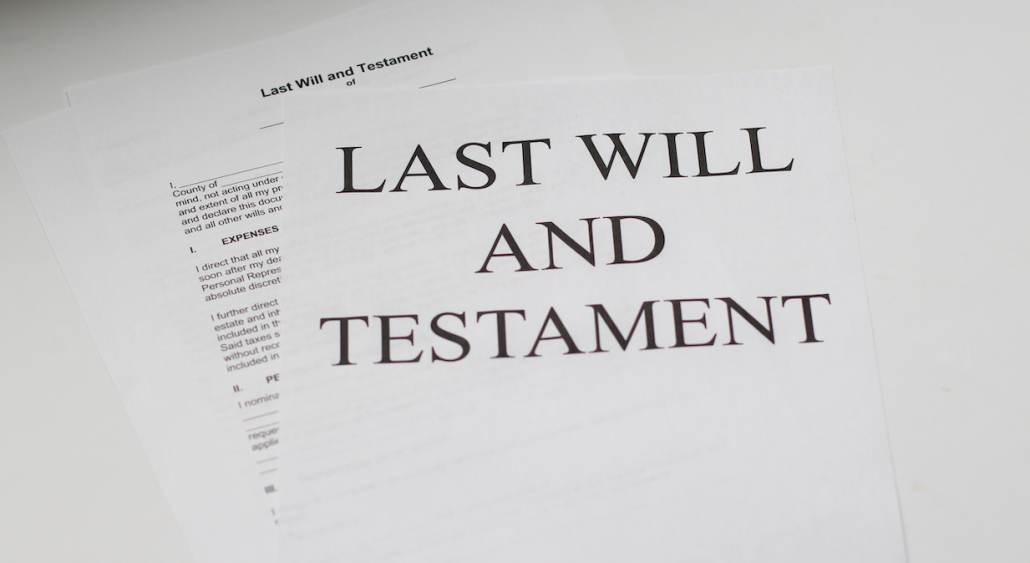Valentine’s Day is coming up quick and while I think the commercialized messages of “this is love” can get a little cheesy, I’m a full supporter of a day that celebrates love. Be it love for your spouse, a celebration of the fact that you are awesome, or showing even more adoration for your furry best friend, the world could always use a little more love. In this important addition to the #PlanningForLove series, let’s talk about ways you can show love to your children through your estate plan.
I’ve discussed the importance of guardianship quite a bit on this blog. It’s important that anyone with minor children establish guardianship so that if something were to happen to you as a legal guardian that your minor children (under age 18) would be immediately placed in the care of someone you know, trust, and most importantly, choose. Just as establishing guardianship is a powerful gift that your children will hopefully never have to actually know about or experience, a testamentary trust can also continue to provide and support your children if something were to happen to you.
There is an almost endless number of different kind of trusts and you can put just about any asset in a trust. Testamentary trusts are one of the most common kinds of trusts I establish for my clients. You may recognize the first word of the type of trust from “last will and testament.” Indeed, a testamentary trust is a trust written into your will and provides for the distribution of a portion or all of your estate.
Sounds simple enough, but you’re thinking, “What does this have to do with my kids?”
Different from an inter vivos trust, which is established during the settlor‘s lifetime, the testamentary trust kicks in at the completion of the probate process after the death of the person who has created it for the benefit of their beneficiaries.
Typically testamentary trusts are created for minor children or others (such as a relative with some kinds of disabilities) who may inherit a large amount of money if you (the testator) were to pass away. The general thinking is that you may not want a minor child, or even a young adult, to have uninhibited access to their inheritance until a certain age (and presumed level of maturity) is reached. (I can imagine what I would have done with an inheritance at, say, age 18 and it surely wouldn’t have been the smartest use of money!) The testamentary trust then terminates at whatever age you choose, at which point your beneficiaries receive their inheritances outright and can use the funds in any way they choose.

The testator can choose the distribution to be distributed in percentages such as 25% at age 18, 25% at age 22, and the remaining 50% at age 25. Or, the trust funds may be distributed in full at a single age. (All at age 25 is the default if the testator doesn’t choose otherwise.) Distributions can also be made immediately upon your passing if all beneficiaries are legal adults (age 18 or older). The testamentary trust could also be set-up for disbursements around milestones, such as a percentage or full disbursement when the beneficiary graduates from an accredited two- or four-year college institution.
Testamentary Trustee
With a testamentary trust, you also need to designate a trustee. The trustee is responsible for managing the trust property according to the rules outlined in the trust document and must do so in the best interests of the beneficiary (for example, a minor child). Generally, I advise the appointed guardian also be the trustee of a child’s testamentary trust.
Testamentary Trust Options
In my Estate Plan Questionnaire, I offer clients three main options for testamentary trust organization. (Note that there can be more than one testamentary trust created in one will.)
- Option 1: Separate trust fund for each beneficiary. Each beneficiary’s inheritance to be held by the trustee in a separate fund. Whatever is left in each beneficiary’s trust fund, if anything, will be distributed to that beneficiary when they attain the age(s) indicated in the following section. This option ensures that all of your beneficiaries are treated equally, regardless of needs.
- Option 2: Single trust fund for multiple beneficiaries. The entire inheritance will be held by the trustee in a single trust fund for the benefit of multiple beneficiaries (such as multiple children). The trustee may make unequal distributions during the term of the trust if a beneficiary needs additional assistance. Whatever is left in the trust, if anything, will be distributed equally when your youngest beneficiary attains the age(s) indicated in the following section. This option will allow the trustee to accommodate a particular beneficiary’s needs by distributing more of the inheritance to that beneficiary during the term of the trust. (Recommended with younger beneficiaries.)
- Option 3: No delayed distribution. Beneficiary’s inheritance may be made directly to the beneficiary or a court-appointed conservator if the beneficiary is a minor/incapacitated. Funds will be distributed directly to the beneficiary at the age of 18.

The important takeaway from all of this is that a testamentary trust can be entirely personalized to fit your wishes. For example, most folks want the testamentary trust written in such a way that their beneficiaries may have access to funds to pay for higher education costs like tuition, room and board, books, and fees, on top of the necessary funds needed for an adequate standard of care, protection, support, and maintenance of the beneficiary.
Estate Plan Revisions & Updates
If you already have an estate plan review it. Estate plans never expire, but major life events or a change in estate planning goals can necessitate changes. For example, if your family welcomed a new baby or adopted a child then it’s definitely time to update your estate plan to include them! Maybe something changes in the future with one of your beneficiaries and you want to change distribution percentages or ages? Simply contact your estate planning attorney and let them know your wishes.
A Lasting Love

The love for your children knows no bounds and without a doubt, you want to make certain you can still provide for them if something unexpected were to happen to you. There’s no day like today (or Valentine’s Day!) to get your ducks in a row just in case. The best place to begin is with my Estate Plan Questionnaire or by contacting me.

























